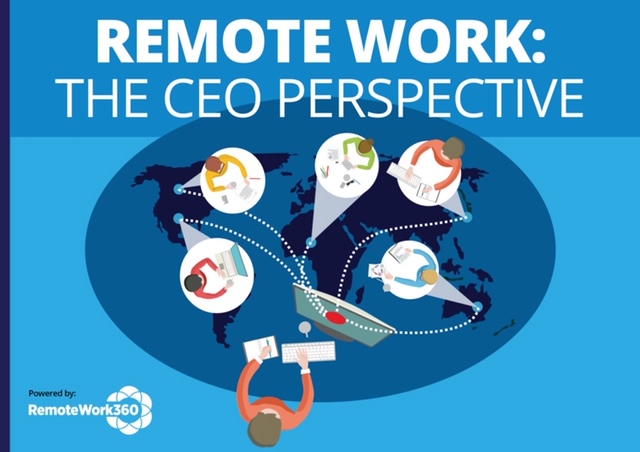Supporting your remote workers - free personality assessment
- Home
- Supplier Directory
- Attendance & Monitoring
- Collaboration & Communication
- Cloud Telephony & VOIP
- Collaboration & Secure File Sharing
- Communication Software
- Creative Tools
- Culture Building
- Interactive presentations/screen sharing
- Messaging Tools
- Online Training
- Productivity
- Project Management
- Shared workspaces
- Time Tracking
- Video Conferencing
- Virtual Water Cooler
- Web Developer tools
- Finance/Accounting
- HR/Talent Management
- IT
- Managing Remote Teams
- Productivity
- Project Management
- Remote Workplace Wellness
- Sales & Marketing
- eNewsletter
- Events / Education
- About Us
- News
HR/Talent Management, Remote Work Insights
ByHeidi Williams
By Elliot Phillips, Psychological Consultancy Ltd
How assessing personality can assist you in supporting your remote workers
Many companies are announcing that remote work will become a permanent feature of their organisational structure. Along with this, the job role of managers is changing dramatically. They are still expected to manage and support their teams, but are required to do so without seeing them in person. In this new context, it is more important than ever to have a clear understanding of team members, their needs, and likely reactions to remote work. Luckily, this insight is readily available via the lens of personality assessment and we’re delighted to offer you free personality profiling for your remote team members, along with guidance on how to interpret the results to direct coping strategies for your remote teams.
PCL is offering a free personality profiling test, along with guidance on how to interpret the results and support your team – click here to claim your free test now.
A remote work environment is different to in-office
The social landscape of the remote workplace is a far cry from the office environment that many managers are used to. Along with this shift in work environment, managers and leaders are often left with a depleted tool kit with which to manage their teams. It is no longer possible to engage in a quick chat by the coffee machine. Virtual meetings eliminate non-verbal cues such as body language that help build rapport. Instead, workplace interactions have been stripped back to a very basic level. This makes it harder to get to know staff members and the support they require.
Personality profiles help predict how individuals will react to working remotely
There is no question that individuals react differently to remote working. For some, the disappearance of a daily commute and proximity of home comforts have made it enjoyable. For others, the limited interactions with colleagues and integration of home and office have had a damaging impact on wellbeing. The variety in individual’s responses to remote work is largely due to personality differences.
Predicting levels of employee engagement and isolation for remote workers
Personality assessment is a familiar component of recruitment and developmental procedures. But it also offers remarkable assistance when it comes to managing teams remotely. The personality profiles of individuals can predict how they are likely to react when working from home. Recent research carried out by Psychological Consultancy Ltd (PCL) found that scores on several personality scales predict levels of employee engagement and isolation. For example, Sociability and Self-Esteem (to name just two) both influence the reactions individuals have when working remotely:


Adapting support for remote workers, based on personality profiling
The support initiatives offered to employees should be tailored to the personality characteristics expressed in their reactions to remote work. Understanding the personality of team members allows managers to address intrinsic staff needs pragmatically. Firstly, it allows them to understand how their team members are reacting to being away from the brick and mortar of the office. Secondly, personality assessment can assist managers in targeting support initiatives strategically. When supporting staff with differing personalities, it’s crucial to avoid a one-size-fits-all approach. Instead support initiatives should be adapted based on individuals personality profiles. Psychological research has uncovered how support initiatives can be adapted based on the scores of many personality scales. Two such examples are:


If you would like to see how the insight of personality can assist you and your team, then join PCL’s Remote Worker Support Initiative. This free to access programme provides workers with a complimentary personality assessment as well as a guide on how to interpret their report and use their results to direct their coping strategies while working remotely.

This article was written by Elliot Phillips, Psychologist At Psychological Consultancy Ltd.
Related Posts
An estimated 86.3% of San Francisco employees are working from home, the highest rate among 10 major ...
May 11, 2021
In the third instalment of her blog - you can catch the first, on maintaining creativity here and ...
January 22, 2021
The different “kinds” of remote: finding the right fit your business Covid-19 has turned our world ...
January 14, 2021
RemoteWork360
RemoteWork360.com is powered by Chief Executive Group, which exists to improve the performance of business leaders, build communities and strengthen society.
Latest Insights
COPYRIGHT ©2020 REMOTEWORK360. ALL RIGHTS RESERVED.



